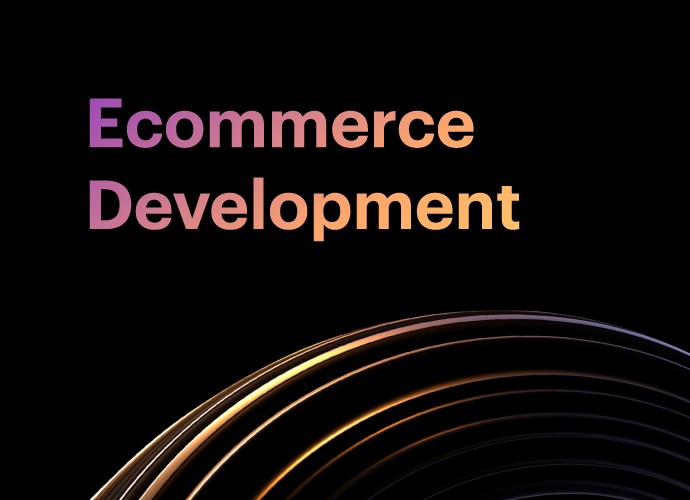Best Retail Ecommerce Platforms For Your Business

Customer experience is no longer a buzzword; it has become an inevitable part of ecommerce business. Every click of a user counts and every interaction moulds brand loyalty, which means your online presence can make a great impact on improving conversions.
Medium and large retail businesses need highly performing online storefronts, which demand an appropriate ecommerce platform that takes the tasks to the next level.
Although there are a multitude of options on the market, knowing the best ecommerce platform is necessary to make the ecommerce business work wonders on your returns.
In this article, we will take you through the detailed comparisons of the best retail ecommerce platforms that support medium-sized and enterprise level companies for their efficient e-commerce operations.
Rise of Headless Commerce and Composable Architecture
The rise of headless commerce and composable architecture witnessed a shift in the way ecommerce businesses work.
Switching to a headless platform will be a significant decision your business can make to adopt a system that can manage multiple systems and replace the burden of having a single system to manage everything.
Before we dive into the best ecommerce platforms for retail businesses, let us understand headless commerce and composable architecture in detail.
What is Headless Commerce?
Headless commerce is a Commerce-as-a-Service (CaaS) architecture, where the shopping cart is decoupled from the Content Management System (CMS). In such cases, brands can use digital experiences platforms like Adobe Experience Manager or a Content Management System WordPress, Drupal, etc.
This helps them plug in a decoupled shopping cart solution. Due to the reduced cost of ownership and exceptional API flexibility, SaaS technologies are also used in place of these decoupled carts.
Conventionally, on-premise hosting, and open-source platforms were popularly used among the IT and development departments at large companies. But, with the increased cost of monolithic technology stacks, a huge demand for innovation and speed from a marketing perspective, SaaS and cloud hosting have disrupted the system.
Headless commerce mitigates this concern by facilitating quicker go-to-market with a relatively lower cost of ownership. Through the use of plugins, APIs and occasionally decoupled technology, businesses can maintain the operations end of monolithic systems.
The different decoupled solutions a headless commerce provider can help you with are as follows:
- CMS to build pages and blogging;
- Enterprise Resource Planning (ERP), like data collection;
- Product Information Management (PIM) to promote sales across various sales channels;
- Email Service Provider ( ESP);
- Order Management System (OMS) that includes inventory management;
- Marketplaces such as Amazon, eBay, etc.
- Point of Sale (PoS) that covers all the payment processing.
Businesses love this architecture because it gives them the freedom to create stunning storefront experiences. It gives a high level of development control and the freedom to implement composable technology stacks, which unlocks the creative freedom to build choicest commerce tools.
Your PoS, mobile, voice and web front ends can connect to a backend system with the help of an API layer, which enables brands to go omnichannel and expand globally. You can use fine grain services on the backend that meet the complicated operational needs of the brand.
Implementing Composable Architecture To Headless Commerce
Composable commerce isn’t just a technological advancement; rather, it is a modular approach to managing your online business. Composable commerce enables brands to take care of everything that ranges from the deployment of ecommerce services to how customers experience the brand. A composable architecture involves decoupling front-end and back-end code, which makes development quicker.
Headless CMS suits composable architectures well, where the decoupled frontend and backend facilitate the reusability of content across different channels or devices without having to rebuild the whole application.
The modular approach of composable architectures makes website or application scaling much easier since novel functionality can be incorporated without investing time in re-architecture. This helps businesses become more agile and resilient, with swift responses to changes in markets or strategies.
Enterprise Ecommerce Platforms With Headless And Composable Architecture
Commercetools
Commercetools holds the #1 position in terms of composability based Gartner Critical Capabilities for Digital Commerce 2023 report. This cloud-based headless ecommerce platform offers APIs to boost ecommerce sales and related functionalities for large businesses. The ecommerce platform offers the best enterprise-specific solutions that incorporate B2B, B2C and front-end services, along with different functional addons.
Why Commercetools?
Modular architecture: The modular architecture lets businesses innovate and adapt with ease, thus creating custom-tailored ecommerce experiences that suit their needs.
Serves global enterprises: Commercetools focuses on serving the needs of large enterprises, which makes it a great choice for enterprises with great Gross Merchandise Value (GMV).
Global reach: The tool has a robust infrastructure and a firm presence across all major global regions, which makes it highly equipped to cater to enterprises on a global level.
Key Features of Commercetools:
- Headless architecture
- API-first
- Integration and omnichannel
- Customisation & scalability
- Flexible data model
- Decoupled frontend
- Content and catalogue management
- AI-driven personalisation
Plans & Pricing:
Commercetools doesn’t offer a free plan but offers quotation-based premium plans. The platform offers custom pricing for their software. The pricing structure of the platform is flexible and influenced by factors such as SKU count, order volume, GMV, and project complexity.
VTEX
VTEX is a global enterprise ecommerce platform provider that offers a complete and composable solution, known as the VTEX Commerce Platform. VTEX is the only provider that ranks high in every use case listed in Gartner ratings making it the best ecommerce platform for large-scale businesses. These services let organisations run quickly while providing the flexibility to build experiences accustomed to the business requirements through effective third party integrations. VTEX makes headless and composable commerce projects seamless, which helps you duly focus on working with differentiation.
Why VTEX?
API-first platform: VTEX offers a headless CMS and a modular API-first solution, with a low-code development platform.
Unified commerce support: It offers and improves the core functionality for manufacturers and retailers with the add-on applications. It also offers promotion capabilities and features like marketplace operations and management.
Third-party ecosystem: VTEX provides an extensive third-party ecosystem that incorporates integrations in different categories.
Lower cost of ownership: The platform manages upgrades and software maintenance automatically to minimise operating expenses and improve business profitability.
Key Features of VTEX:
- B2B and B2C digital commerce
- VTEX IO development platform for low-code development
- Experience management
- Complete headless structure
- Order management
- Marketplace management
Plans & Pricing:
The VTEX pricing plan includes two components: a monthly licence fee for using the platform and a shared success fee, which is decided according to the number of orders or GMV transactions with the platform.
Top Ecommerce Platforms For Medium To Large Scale Businesses
Let’s now take a look at the top ecommerce platforms that cater to the ecommerce operations for medium and large scale businesses.
Adobe Commerce (Magento)
Magento offers two self-hosted options: Magento Open Source and Adobe Commerce. While the former is free, the latter is a paid solution. It also offers an enterprise-grade cloud-based solution known as Adobe Commerce on Cloud.
Being an Adobe company, Magento provides rich features to support eCommerce players. From catalogue to payment to the experience, Adobe Commerce lets you build a flexible and scalable business. This is a solid choice when you have a developer, since coding is an integral part of it. If you prefer a highly personalised online store, you can opt for Magento ecommerce development services from an agency that can craft something you really like.
Why Adobe Commerce?
Customisation capability: Adobe Commerce (Magento) is one of the most leading and customisable ecommerce platforms, with its core control over developing functionalities of ecommerce websites and capability to tune the code flexibly to fit into the smallest nuances.
Unified store management: Adobe Commerce takes B2B and B2C store management into a unified process.
Strong business intelligence: Strategic development of ecommerce storefronts is not possible without reliable data from which you can make decisions. The business intelligence solution of Adobe Commerce offers strategic information, order related information, retention rates, etc., which supports abandoned cart recovery.
Ideal marketplace: It has a multitude of extensions, which are the services that add new functionality to the platform. Including the ecommerce functionality and incorporating new marketing tools enhance SEO, helping you reach a huge audience.
Key Features of Adobe Commerce:
- Secure payment options
- Large catalogue management
- In-built SEO module
- Effective content management
- Easy drag and drop editor
- Payment, CRM and ERP integrations
- Plugin or extension availability
Plans & Pricing:
Magento Open Source offers a free version, while the pricing of Adobe Commerce is available upon request. The latter provides the same features as the former but with additional features such as designated resources for cloud infrastructure, escalation management, go-live process training, etc.
Although no specific price is mentioned, Adobe Commerce offers two core pricing packages, namely Commerce Pro and Managed Services. You can request a demo of Magento development services before you purchase the subscription.
BigCommerce
BigCommerce offers a 15-day free trial with full Plus plan access and various other plans that enable your business to sell and grow online. One of the best standout features of BigCommerce is omnichannel sales. This tool is helpful to connect your eCommerce store to different marketplaces while considering inventory management in a centralised place. It offers customer segmentation that relies on background and online purchase habits. The store also helps you with a personalised shopping experience with product recommendations and additional promotions.
BigCommerce development also supports headless commerce, which means it helps you manage the online store while the visuals and content are managed through a CMS (Content Management System).
Why BigCommerce?
Headless flexibility: BigCommerce lets you enjoy the benefits of headless architecture with native and third-party options that offer custom-tailored experiences and storefronts.
Channel integration: The platform enhances the channel integration capabilities, which enables seamless multichannel operations.
B2B and B2C support: BigCommerce exhibits the capability to manage both B2B and B2C needs using the same platform.
Consistent growth: The consistent growth of the platform reflects the commitment and viability of Bigcommerce for innovation, making sure your business makes its path.
Robust ecosystem: The tool also offers an extensive library that consists of third-party applications to improve every facet of the ecommerce operations.
Key Features of BigCommerce:
- Full-featured online storefronts
- Multicurrency for display , transact and settle
- Fully customisable checkout
- Coupons, discounts and gift cards
- Multi-storefronts
- Headless capabilities and integrations
- Faceted search and custom facets
- Unlimited API calls
Plans & Pricing:
BigCommerce includes three core pricing plans, which range from $29 to $299 per month. The standard plan is available for $29 per month; the plus plan is $79 per month; and the pro plan is $299 per month. The enterprise plan is available for custom pricing, which helps you have a customised and well-organised storefront.
Salesforce Commerce Cloud
Another eCommerce solution, Salesforce Commerce Cloud, is a cloud-based B2B and B2C commerce builder that helps large businesses build personalised purchase experiences across web, mobile and social networks. Business owners can gain access to a centralised view of products, inventory, customer activity, and promotions across channels.
Salesforce Commerce Cloud provides headless commerce that lets businesses make prompt changes with the fewest risks involved in the deployment. It also enables ease of payment integration with integrated fraud prevention. The platform leverages AI purchase behaviour information that informs marketing, pricing, and product development-related business decisions. This technology also provides customers with relevant product recommendations and desired search results.
Why Salesforce?
Integrations with social channels: Salesforce helps you connect with social media platforms to expand your business reach.
Page designer support: With Salesforce, you can customise and compose the ecommerce storefronts easily.
Store fulfilment applications: The platforms let you streamline the order fulfilment operations for the online store.
Headless feature for B2C: The headless rollout features ensure smooth transition to PWAs, which enable advanced shopping experiences.
Key Features of Salesforce:
- AI-powered product recommendations
- Analytics and reporting capabilities
- Social media integration
- Order management system
- Inventory management
- Mobile-optimised websites & applications
Plans & Pricing:
Salesforce Commerce Cloud pricing differs based on the customer’s needs. With the specialised support of the sales team, you can receive a package offer custom-tailored to your budget and requirements.
Shopify
Shopify is one of the most popular ecommerce platforms that businesses use to build their storefronts. Businesses can start setting up the store with a 3-day free trial. Being the trusted retail ecommerce website builder for over 18 years and having millions of stores built using Shopify, it has been the best option businesses look forward to run their online stores.
If you need specialised assistance, you can hire a dedicated Shopify developer to build your Shopify website. With Shopify development services, the process of designing stores, adding products, creating discounts, configuring payments, checking the sales figures, etc. becomes easier and quicker.
Why Shopify?
Ease of access: After subscribing to the Shopify plan, you get access to all the functionality to set up your online storefront.
No coding expertise needed: Even if you have never had experience building a website, you can get through the basics of Shopify to build an intuitive eCommerce store.
Customisability: The pre-designed templates can be customised to suit your preferences. With the web based website builder of Shopify, you can design your own custom online storefront.
SEO and marketing to boost sales: The platform supports SEO best practices, automated sitemap.xml, social media integrations, and Shopify analytics.
Advanced dashboard: With advanced analytics, you get to access the online store performance to optimise store operations and make strategic decisions
Key Features of Shopify:
- Free & premium store templates
- SEO and marketing features
- Three-day trial available for every plan
- Payment integration
- Advanced dashboard and inventory tracking
- Point Of Sale (POS) system
Plans & Pricing:
Shopify has three plans: Basic, Shopify and Advanced. The price ranges from $29 to $299 every month; however, you can save 25% while opting for a yearly subscription instead of a monthly plan.
While Shopify development doesn’t offer any free plans, the three-day free trial is an advantage for businesses. This doesn’t give you enough time to get familiar with the platform, but the introductory deal offers you the privilege to get the first month for $1.
WooCommerce
WooCommerce offers the right option when you already have a WordPress website. You can use it for free; however, you should pay the hosting and domain fees for WooCommerce. While considering store management, SEO, communication and security, the costs differ and are optional. You can opt for the add-on WooCommerce development services that suit your requirements. App integrations are also accessible, like connecting to third-party apps for automations.
The plugin helps you add essential online store functionality to the existing WordPress site. After you install and activate it, you can control the online store directly from the WordPress dashboard. WooCommerce incorporates various eCommerce features, ranging from inventory management to payment processing. You can expand this functionality with numerous extensions, which include store management, marketing tools and shipping.
Why WooCommerce?
Storefront customisation: WooCommerce lets you make required changes in templates and themes through customisation options.
Built-in features and plugins: With advanced plugins and built-in features, you can create and run optimised online stores, thus giving reliability and flexibility for all businesses.
SEO-friendly CMS platform: Through optimising the site for SEO with our SEO-friendly features, you can experience more engagement and conversions with the brand.
Features for marketing: WooCommerce incorporates different features of marketing, which helps marketing store products, run different campaigns and promotions, and add discounts easily.
Key Features of WooCommerce:
- Built-in SEO tools
- Code free design and editing
- Flexible and secure payments
- Integration with region- specific gateways like Paypal, Stripe, WooCommerce payments, Apple Pay, Google Pay
- Automated site backups
- Hosting support
Plans & Pricing:
WooCommerce is free to download and free to install. But you would require a domain name, hosting services and a WordPress website. You require a WordPress.org website for the free plugin installation. When you use WordPress.com, WooCommerce gets included in the Commerce plan, which is accessible for $45 per month.
You can also consider the other costs, which include customisation features like themes and extensions. The WooCommerce Extensions Store offers several add-ons, which range from free to premium extensions that cost up to $299 per year. Premium WordPress themes enabled on third-party websites cost about $30-$400 per year.
Conclusion
The aforementioned retail ecommerce platforms play a significant role in building the strategies to amp-up both medium scale and large scale businesses. While Commercetools and VTEX are highly recommended for the enterprise-level companies, the platforms like Adobe Commerce (Magento), WooCommerce, Salesforce, and BigCommerce can suit both medium and large scale businesses.
Shopify is an excellent platform that works for all types of businesses since it demands no coding expertise, making it relatively easy to build and manage. Ecommerce website builders create a powerful solution for the customers, allowing them to see, experience and purchase the products they require.
By giving detailed attention to UI/UX, seamless integrations and a great backend, Our eCommerce development services, including Adobe Commerce (Magento), WooCommerce, BigCommerce, and Salesforce development services, provide a robust platform that empowers you to effectively sell your products and services. As the best ecommerce website development company in India, WAC offers a world-class ecommerce ecosystem through custom integrations and APIs to offer complete control over ecommerce operations.

Ecommerce Website Development Services
Bridge the gap between your storefront and customer with our strategic eCommerce solutions
Discover Digital Transformation
Please feel free to share your thoughts and we can discuss it over a cup of tea.










